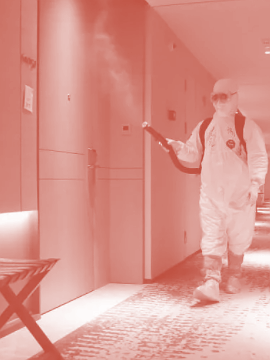States chase quarantine fees
 Nearly four years since the COVID-19 pandemic's peak, Australian state and territory governments are still chasing down over $70 million in unpaid hotel quarantine fees.
Nearly four years since the COVID-19 pandemic's peak, Australian state and territory governments are still chasing down over $70 million in unpaid hotel quarantine fees.
With varying degrees of success and strategies ranging from debt waivers to legal action, the mission to recoup costs shows a complex aftermath of the COVID-19 containment efforts.
In March 2020, Australia introduced mandatory hotel quarantine for all arrivals, initially funded by state and territory governments.
By July 2020, as the federal government declined to assume cost responsibility, states began billing arrivals for their stays. The program, intended to curb the virus spread, concluded by early 2022, replaced by home quarantine measures.
Reporters have asked the states and territories how much money they still seek to reclaim.
Queensland reports the highest outstanding balance at approximately $36 million, from a total of $255 million in incurred fees. Despite having recovered $219 million, the state has waived about $44 million for those in financial hardship.
New South Wales follows with $26.1 million outstanding, having issued fees totaling $326.1 million. The state has also seen $52 million in fees withdrawn or waived.
The Australian Capital Territory says it has no outstanding quarantine debts, having collected $675,620 in fees and waived $129,930.
Tasmania's outstanding amount is $1.56 million, while the Northern Territory has $3.2 million yet to be paid from a total of approximately $37.3 million in issued invoices.
South Australia and Western Australia are also seeking to recover $8.49 million and $100,000 in unpaid fees, respectively.
Victoria has not provided recent figures but was reported to have an estimated $9.1 million in unpaid quarantine fees last year, with $52.5 million recouped.
Efforts to recover the owed amounts include wage garnishing, debt collection referrals, and offering payment plans or debt waivers for those in extraordinary circumstances.
However, some governments reportedly acknowledge the unlikelihood of fully recouping the amounts spent.
This pursuit of unpaid quarantine fees raises questions about the fairness of charging individuals for government-mandated isolation.
Critics argue that people should not bear the financial burden for measures taken in the public health interest.








 Print
Print